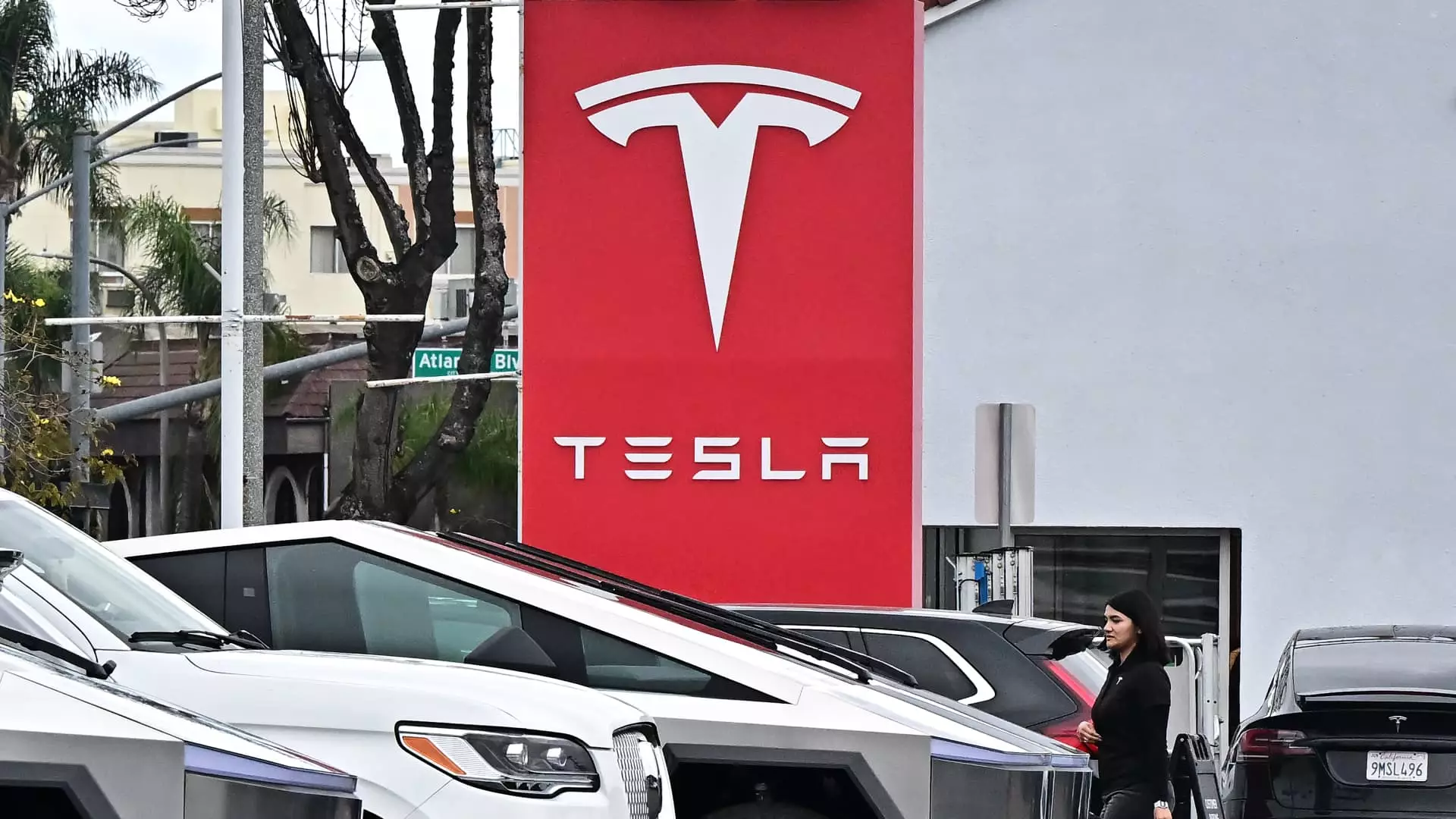Tesla’s once unassailable hold on the electric vehicle (EV) market is increasingly under scrutiny as Wall Street analysts grow more pessimistic about the company’s financial prospects. The recent downgrades from financial giants like Goldman Sachs, UBS, and Mizuho underscore a troubling reality: escalating trade tensions are creating a perfect storm threatening the very foundations of Tesla’s operations. This reflects a broader shift from a mere optimistic outlook to a sober assessment dominated by uncertainty and caution. The electric vehicle market, once thought to be a sure bet for growth and innovation, is now navigating choppy waters that could realign competitive advantages—an uncomfortable position for a company that has so closely associated its brand with unassailable innovation.
Analysts’ Pessimistic Price Targets
Take, for instance, UBS’s recent downgrade of Tesla’s stock price target from $225 to $190, which translates to an alarming 30% downside. In the world of finance, such adjustments are not mere number shuffles; they reflect deep-seated concerns about future profitability. Analysts are starting to voice what has long been whispered in boardrooms: the trajectory of Tesla’s earnings is, in fact, too optimistic. Goldman Sachs isn’t far behind, trimming its price target from $275 to $260. Even Mizuho, which maintains a somewhat optimistic stance by setting its target at $375 (down from $430), recognizes the looming challenges Tesla faces in a fiercely competitive market. Is the euphoria surrounding Tesla finally wearing thin?
Musk’s Double-Edged Sword
Adding to the complexity is Elon Musk’s positioning within the current political landscape. His ties to the Trump administration have sparked criticism and speculation, suggesting that external factors may influence Tesla’s growth potential just as much as internal metrics. Investors are increasingly wary of the implications that political shifts might have on legislation affecting EV manufacturers. Amid concerns about U.S. electric vehicle policies and tariffs, skepticism toward Tesla’s future is spreading like wildfire. Can a company, often hailed for its visionary leadership, sustain its innovative advantage in light of these realities?
Consumer Sentiment and Demand: A Dangerous Trend
Equally disconcerting is the fading consumer sentiment towards the automobile market at large, particularly in a scenario where demand is diminishing. Comparatively, Tesla’s share price market downturn—a staggering 33% drop this year—reveals not only a collapse of investor faith but also a distinctly cautionary stance from consumers. As financial analysts cite risks related to weaker auto demand and rising tariff costs in markets like China, a question looms: will Tesla’s reputation as a leader prove resilient, or is the world shifting beneath its wheels? Consumer appetite for innovation may be waning, and Tesla’s promised AI-related efforts might not be enough to channel those changes into profit.
The Competitive Landscape Tightens
What about the competition? As other manufacturers ramp up their production of electric vehicles, the question arises whether Tesla can maintain its market leadership in the U.S. Let’s not forget that the landscape for electric vehicles is not a standalone arena—it’s evolving in the context of a global marketplace where rivals from Europe and Asia are sharpening their strategies. Mizuho’s relatively bullish outlook—stressing Tesla’s potential to lead the U.S. EV market—appears optimistic when viewed through the lens of increasing competition. This raises a crucial point: can Tesla fend off challengers armed with newly launched models and significant operational capacity?
Eyes on the Long Term
Nonetheless, amid these challenges, there lies a thread of hope woven into the analysts’ reports. Some believe that Tesla’s strides in artificial intelligence and energy sectors may eventually cushion the blow from market turbulence. However, this perspective begs a critical question: will perceived long-term potential justify current stock valuations in the midst of short-term turmoil? Are investors prepared to endure the rollercoaster ride that comes with such a high-stakes gamble? The market buzz might be thick with uncertainty, but one thing is for sure: the resilience of Tesla’s brand and technology will be put to the test as the automotive industry faces unprecedented change.

